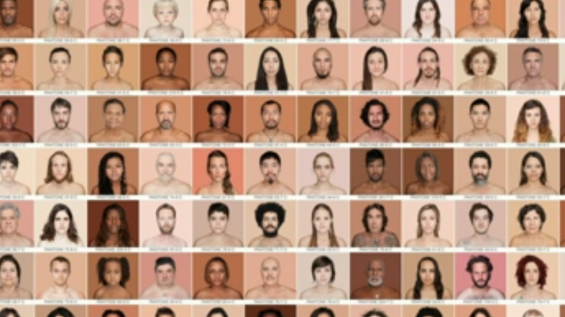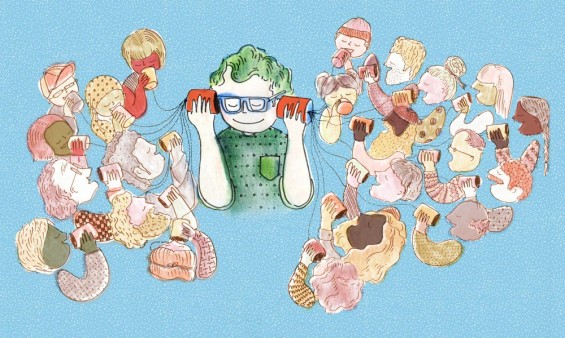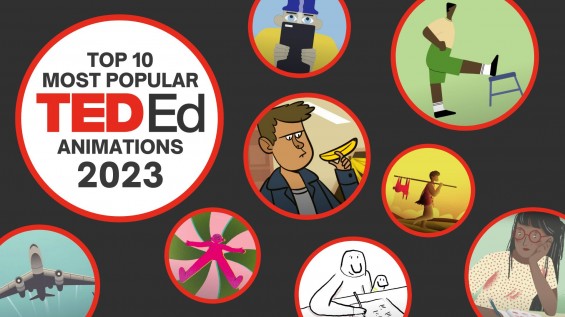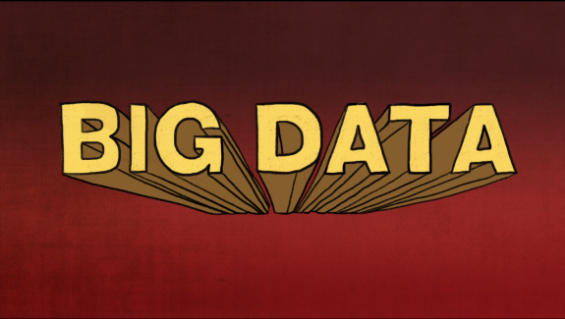
Why I taught myself 20 languages — and what I learned about myself in the process
During the past few years, I’ve been referred to in the media as “The World’s Youngest Hyperpolyglot” — a word that sounds like a rare illness. In a way it is: it describes someone who speaks a particularly large number of foreign languages, someone whose all-consuming passion for words and systems can lead them to spend many long hours alone with a grammar book.
But while it’s true that I can speak in 20 different languages, including English, it took me a while to understand that there’s more to language than bartering over kebabs in Arabic or ordering from a menu in Hindi. Fluency is another craft altogether.
I began my language education at age thirteen. I became interested in the Middle East and started studying Hebrew on my own. For reasons I still don’t quite understand, I was soon hooked on the Israeli funk group Hadag Nachash, and would listen to the same album every single morning. At the end of a month, I had memorized about twenty of their songs by heart — even though I had no clue what they meant. But once I learned the translations it was almost as if I had downloaded a dictionary into my head; I now knew several hundred Hebrew words and phrases — and I’d never had to open a textbook.
I decided to experiment. I spent hours walking around my New York City neighborhood, visiting Israeli cafés to eavesdrop on people’s conversations. Sometimes, I would even get up the courage to introduce myself, rearranging all of the song lyrics in my head into new, awkward and occasionally correct sentences. As it turned out, I was on to something.
I moved on to Arabic, which I’d study every morning by reading news headlines with a dictionary and by talking to street vendors. After that it was Persian, then Russian, then Mandarin … and about fifteen others. On an average day, I’d Skype with friends in French and Turkish, listen to Hindi pop music for an hour and eat dinner with a Greek or Latin book on my lap. Language became an obsession, one that I pursued in summer classes, school, web forums and language meet-ups around the city.
By March of 2012, media outlets such as the BBC and The New York Times featured stories about me, “The Teen Who Speaks 20 Languages!” For a while, it was a fantasy; it made what many thought of as a bizarre hobby seem (almost) mainstream, and gave me a perfect opportunity to promote language learning.
After a while, though, my media “moments” felt more like gruesome chores than opportunities to spread the word. Most news shows were interested only in the “dancing bear” act (“You wanna learn more about the Middle East? Cool… Say ‘you’re watching Channel 2’ in Arabic!”) As lighthearted as that might have been, it left me with an uncomfortably personal lesson in modern media: when the goal is simply to get the viewers’ attention, the real importance of a story often gets lost in translation.
When I was beginning to discover languages, I had a romanticized view of words like “speak” and “fluency”. But then I realized that you can be nominally fluent in a language and still struggle to understand parts of it. English is my first language, but what I really spoke was a hybrid of teenage slang and Manhattan-ese. When I listen to my father, a lawyer, talk to other lawyers, his words sound as foreign to me as Finnish. I certainly couldn’t read Shakespeare without a dictionary, and I’d be equally helpless in a room with Jamaicans or Cajuns. Yet all of us “speak English.”
My linguistics teacher, a native of Poland, speaks better English than I do and seems right at home peppering his speech with terms like “epenthetic schwa” and “voiceless alveolar stops”. Yet the other day, it came up that he’d never heard the word “tethered”. Does that mean he doesn’t “speak” English? If the standard of speaking a language is to know every word — to feel equally at home debating nuclear fission and classical music — then hardly anyone is fluent in their own native tongues.
Reducing someone to the number of languages he or she speaks trivializes the immense power that language imparts. After all, language is the living testament to a culture’s history and world view, not a shiny trophy to be dusted off for someone’s self-aggrandizement.
Language is a complex tapestry of trade, conquest and culture to which we each add our own unique piece — whether that be a Shakespearean sonnet or “Lol bae g2g ttyl.” As my time in the media spotlight made me realize, saying you “speak” a language can mean a lot of different things: it can mean memorizing verb charts, knowing the slang, even passing for a native. But while I’ve come to realize I’ll never be fluent in 20 languages, I’ve also understood that language is about being able to converse with people, to see beyond cultural boundaries and find a shared humanity. And that’s a lesson well worth learning.
Watch Breaking the language barrier, Timothy Doner’s talk at TEDxTeen 2014. Featured illustration by Dawn Kim/TED.
This piece originally ran on ideas.ted.com. »





Hey, Jamaican and English are two separate languages like Spanish and Latin are two separate languages. Jamaican has many English *loan words* but it is not English. Keep up the good work man.
Wiki: http://en.wikipedia.org/wiki/Jamaican_Patois
All a matter of personal opinion my friend. Some would say they are the same language, others wouldn’t. There is no way of scientifically saying for sure. Personally I have found that it takes very little exposure to be able to understand Jamaican Creole (a week maybe), so I’d say it’s more a dialect of English than a separate language, but again, it is only a subjective and arbitrary decision.
Thank you! Yes they are different. Grammatical structure is distinct, different spellings to many words; they are different languages.
Hey, Jamaican and English are two separate languages like Spanish and Latin are two separate languages. One could however argue that Jamaican is a derivative of English because there are many *loan words* from English in the Jamaican Language.
Wiki: http://en.wikipedia.org/wiki/Jamaican_Patois
What an interesting article, so true in many respects.
I’ve gained a lot of respect for this guy from this article. I know see that he is more humble and realistic about his language capabilities. Unfortunately I had been duped once again by the media into disliking the guy for purporting to speak all these languages and providing a misleading story to the majority of native English speakers whose knowledge of languages is shockingly poor, and who believe there is such a thing as fluency.
Maybe you will try Korean next! When The Gandam?? sp song came out, you could read the words on closed caption! Although I did not understand what the words were, I found it very easy to pronounce word as they were spelled exactly like they sound! At least to my ears! Thank you for the uplifting story!
I strongly support reduction and death of languages. Here is why.
I want us to acknowledge and manifest the fact that there is only one race. We are all earthlings. I want us to understand each other EASILY and stop going to war against people we don’t understand. I think this is a higher priority than preservation of lexical nuance. Flags, borders, currencies, and yes language differences are all obstacles to achieving this. Language is a mostly functional thing whose function is to transfer thoughts from one person to another. Functional things are not matters of preference. Only things that appeal to the five senses are matters of preference. Language does concern the sense of hearing, but by far people prefer the sound of a language because of familiarity which only depends on which one you learned first. It’s not always the case though. Some people prefer the sound or visual arrangement of characters in a foreign language. But the upside of people who are not hyperpolyglots (most of us) being able to communicate is in my opinion a lot bigger.
This doesn’t at all mean that I think we should all be the same and do the same things and eat the same things. I just think that the variety should only concern things involving the five senses and not functional things which are best when standardized because of the reduction in time that comes with standardization. In the future, there will only be one language and people will not lament this any more than they lament that we all use base 10 for mathematics.
Dear Dan,
I’ve just happened to read the article and your comment.
I completely agree on the human race, and I support it.
But eliminating differences … does it make it a solution? Standardization, really? Who would choose this “standard language” we all speak? Would it be the language taught at school, the “correct” one? And If so, aren’t we excluding non educated people from this “universal human race”.
Rather, I think that we all speak our own idiolects and, for how much it can obstructs communication, it still indexes identity. Even when speaking a lingua franca (the way I ma using English right now for example: I am using it just to communicate, not to convey any cultural-specific meaning related to the Anglo-Saxon world), we all speak it our way. For example, I am using a lot of formal verbs. I have said “Obstruct” and not “block”. But that is because it is closer to my native language, which is a Romance one, and I want it to be indexed when I speak. I don’t want to loose my identity.
Shall we loose our identity at the expenses of communication?
Very good article anyways. Clever and clear.
While I can absolutely see your point, I would have to disagree in one aspect. Language is not simply a function. It is not simply an outpouring of our need to communicate – or rather at least not on the simplistic level of as getting a point across.
If you look at the differences in language between cultures, there is a representation of generations of lives lived with this language. Syntax and lexical content reflect what is important to a people, and what they value. It shows how a culture has evolved, and at what cost, and with what goals and values. Language is so much more than just talking, and I think that trying to boil that down to all of us being able to talk to each other denigrates what is truly fascinating about language.
Whether or not we will all eventually speak the same language is not a forgone conclusion, actually there is much evidence to the contrary, and if it did happen, I know many, many people who would lament it greatly.
I get your point about humanity, but I would strongly disagree with the support of the death of languages. Each language is a different way of seeing the world, and to lose just even one is a loss to our collective humanity. I could advocate for a universal language, but it’s not at the expense of other languages.
Dear Dan ,
Please do not make sweeping statements like this. I come from a country where a new language or dialect is spoken for every 500kms. The cultural diversity it brings is amazing. at the same time we have managed to preserve our customs and traditions for thousands of years in spite repeated invasions and colonialism. If you look at the richness of literature that is available in every language some of it dating back to 1500BC, people would be stumped. Most of it was preserved by oral traditions.
Sadly most of our languages are dying out and the literature being written in our languages has been steadily declining due to emphasis o n so called modern English education and of course advent of modern media.
So please encourage anyone who is interested in learning new languages.
There’s a scene in the movie “Captain Newman, M.D.” where Tony Curtis’s character speaks Italian to some captured troops and then explains to the other employees of the base “In the neighborhood where I grew up, you had to speak five or six languages.”
Thank you for sharing a most insightful view on the meaning of ‘fluency.’ I found it particularly important that you pointed out these fundamental differences in different vernacular in various fields and settings even in the same language. Too often I think we get caught up in ‘speaks 720 languages’, or ‘learn to speak xxx language in 18 days’ sort of headlines, and overlook the level of nuance, and variety that exists in any language, a reflection of the multi-layered and hugely varied cultures and settings they come to represent.
Thanks for such an insightful and deep article, Timothy! From my teaching experience, I can say that students generally have great difficulty in the simultaneous study of multiple languages. They are looking for the books and researches which describe the various techniques and methods of language learning but often they do not work. I recently came across this article https://studentshare.net/content/articles/5-languages-you-definitely-have-to-learn-in-modern-world, showed it to folks and asked them to focus on studying these 5 languages. Now at least they will know which of languages will be really helpful in their future.
All a matter of personal opinion my friend. Some would say they are the same language, others wouldn’t. There is no way of scientifically saying for sure. Personally I have found that it takes very little exposure to be able to understand Jamaican Creole (a week maybe), so I’d say it’s more a dialect of English than a separate language, but again, it is only a subjective and arbitrary decision
English and Jamaican patois (creole) are completely sepreate things. yes patois is a stem of creole but creole simply is a language that has its origin in extended contact between two language communities. patois in fact has a majority of loan words of Akan origin It is based on French and on the African languages spoken by slaves brought from West Africa to work on plantations. It is often incorrectly described as a French dialect or as “broken English”. In fact, it is a language in its own right with its own pronunciation, grammar, vocabulary, and pragmatics.All of which to say , if you honestly heard Patois from an actual native not an Americanized one, there would hold a plethora of terms and usages you wouldn’t possibly be able to comprehend based off simple exposure during a weeks time.
English and Jamaican patois (creole) are completely sepreate things. yes patois is a stem of creole but creole simply is a language that has its origin in extended contact between two language communities. patois in fact has a majority of loan words of Akan origin It is based on French and on the African languages spoken by slaves brought from West Africa to work on plantations. It is often incorrectly described as a French dialect or as “broken English”. In fact, it is a language in its own right with its own pronunciation, grammar, vocabulary, and pragmatics.All of which to say , if you honestly heard Patois from an actual native not an Americanized one, there would hold a plethora of terms and usages you wouldn’t possibly be able to comprehend based off simple exposure during a weeks time.